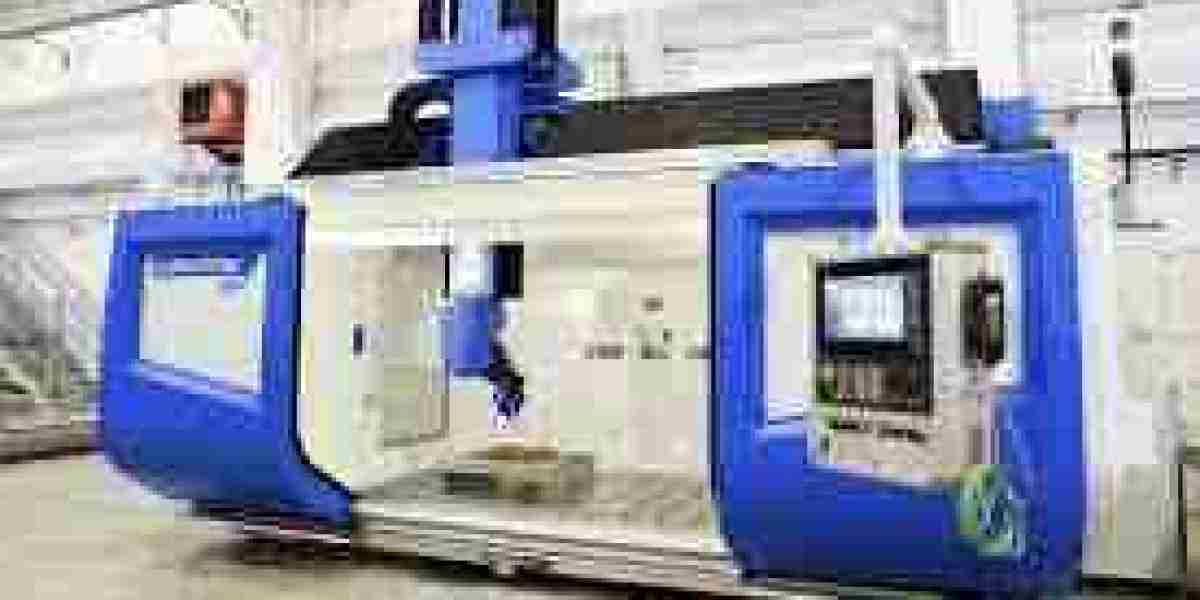CNC machining is one of the most versatile and precise manufacturing methods available today.
It enables the production of complex parts with tight tolerances and excellent surface finishes. While CNC machines can handle a variety of materials, metals remain the backbone of most industrial applications due to their strength, durability, and thermal stability.
This guide highlights the top five metals used in CNC machining, explaining their unique characteristics and where they’re most effectively applied. Whether you're prototyping or producing in volume, choosing the right metal is crucial to part performance, cost-efficiency, and manufacturability.
1. Aluminum: Lightweight Versatility
Aluminum is the most commonly used metal in CNC machining due to its excellent machinability and lightweight properties.
Key Characteristics:
Low density (2.7 g/cm³)
High strength-to-weight ratio
Corrosion-resistant (especially with anodizing)
Excellent thermal and electrical conductivity
Cost-effective and widely available
Common Alloys:
6061: General-purpose; great for structural parts
7075: High-strength alloy used in aerospace
2024: Offers high fatigue resistance
Applications:
Aerospace frames and brackets
Automotive engine components
Consumer electronics housings
Medical device enclosures
Robotics and automation parts
Aluminum’s balance of strength and machinability makes it ideal for parts requiring both performance and manufacturability. It’s also easy to anodize for added surface protection and color coding.
2. Stainless Steel: Corrosion Resistance & Strength
Stainless steel is known for its excellent strength and corrosion resistance, especially in harsh environments.
It’s used widely in industries that require durability, hygiene, and structural integrity.
Key Characteristics:
High tensile strength
Excellent resistance to rust and chemicals
Can withstand sterilization and extreme temperatures
Non-reactive, making it ideal for food-grade and medical applications
Common Grades:
304: General-purpose stainless with good formability
316: Higher corrosion resistance, especially in saline environments
17-4 PH: Precipitation-hardened for extra strength and wear resistance
Applications:
Surgical tools and medical implants
Food processing equipment
Industrial fasteners
Marine hardware
Chemical tanks and valves
Stainless steel is more challenging to machine than aluminum due to its hardness and work hardening properties. However, experienced CNC machining service providers use the right tooling and coolant strategies to ensure high-quality finishes.
3. Brass: Excellent Machinability and Appearance
Brass is a copper-zinc alloy prized for its ease of machining, acoustic properties, and attractive appearance.
It is often chosen when aesthetic finish and tight tolerances are essential.
Key Characteristics:
Outstanding machinability
Low friction and excellent wear resistance
Naturally antimicrobial
Visually appealing (gold-like color)
Good electrical conductivity
Common Grades:
C360 (Free-Cutting Brass): Highly machinable and ideal for high-volume production
C260 (Cartridge Brass): Better formability, used for bending and drawing
Applications:
Electrical connectors and terminals
Valve and pump components
Decorative hardware
Musical instruments
Plumbing fittings
Brass offers the added advantage of reduced tool wear, making it ideal for precision machining in large quantities.
4. Titanium: High Strength and Biocompatibility
Titanium is a high-performance metal used in critical applications where strength, weight savings, and corrosion resistance are vital.
Though expensive and harder to machine, it’s unmatched in performance for demanding sectors.
Key Characteristics:
High strength-to-weight ratio
Excellent corrosion resistance (even in seawater and bodily fluids)
Biocompatible and non-toxic
Non-magnetic and non-reactive
Low thermal conductivity
Common Grades:
Grade 2: Commercially pure titanium, easier to machine
Grade 5 (Ti-6Al-4V): Aerospace-grade, high strength and heat resistance
Applications:
Aerospace structural components
Medical implants and surgical tools
Military and defense hardware
High-performance automotive parts
Chemical processing equipment
Titanium machining requires specialized tools, slower feed rates, and controlled heat management, but the resulting parts offer unparalleled performance.
5. Steel (Carbon & Alloy): Durability and Cost Efficiency
Carbon steel and alloy steel are staples in industrial CNC machining for parts that need strength, toughness, and wear resistance.
They are more affordable than stainless steel and offer excellent mechanical properties.
Key Characteristics:
High hardness and impact resistance
Cost-effective for structural applications
Easily heat-treated for improved strength and wear properties
Can be surface-hardened or coated for corrosion protection
Common Grades:
1018 (Low Carbon Steel): Easily machined, suitable for general-purpose parts
4140 (Alloy Steel): High-strength and wear-resistant
1045 (Medium Carbon Steel): Balanced hardness and machinability
Applications:
Shafts, gears, and couplings
Tooling components
Heavy machinery and construction equipment
Automotive axles and frames
Industrial rollers and dies
While steel is harder on tools than aluminum or brass, it’s a top choice for parts that require long-term durability under mechanical stress.
Choosing the Right Metal for CNC Machining
Selecting the right metal depends on the following:
Application Requirements: Does the part need to be lightweight, corrosion-resistant, or able to withstand high loads?
Machinability: How easily can the metal be shaped, and what tooling is required?
Cost: Is the project budget-sensitive, or is material performance the top priority?
Post-Processing Needs: Will the part be anodized, coated, or heat-treated?
Regulatory Standards: Medical and aerospace applications require specific certifications and traceability.
A knowledgeable CNC machining partner can help evaluate these variables and recommend the optimal material based on your design and performance goals.
Summary Table: Top 5 CNC Metals at a Glance
| Metal | Strengths | Typical Use Cases |
|---|---|---|
| Aluminum | Lightweight, corrosion-resistant | Aerospace, electronics, general engineering |
| Stainless Steel | Strong, corrosion and heat resistant | Medical tools, food equipment, marine parts |
| Brass | Easy to machine, decorative finish | Fittings, instruments, aesthetic components |
| Titanium | High strength, biocompatible | Implants, aerospace, defense |
| Carbon/Alloy Steel | Tough and wear-resistant | Gears, shafts, machinery |
Final Thoughts
The choice of metal in CNC machining has a direct impact on performance, cost, and product success.
Each metal brings unique mechanical and chemical properties, and choosing the right one requires a balance between function, budget, and manufacturability.
Whether you’re developing a prototype or running a high-volume part order, partnering with an experienced CNC machining service ensures that your material selection, toolpath strategy, and surface finish align perfectly with your project’s goals.









